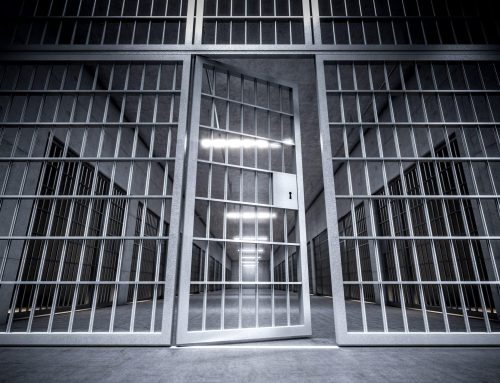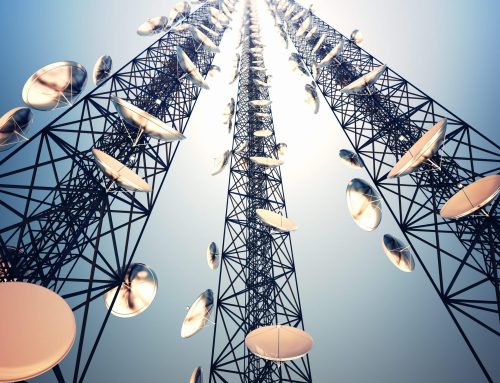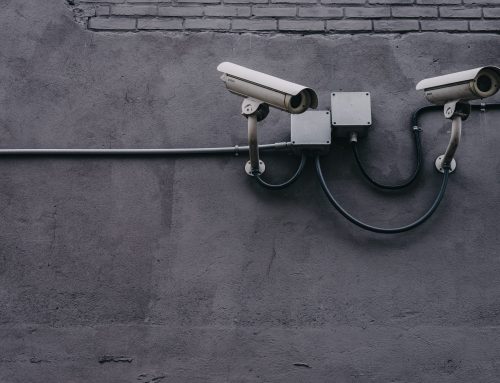RF, or radio frequency, signals float through our everyday lives allowing us to communicate, share, and learn through the devices like mobile phones that we rely on. However, as technology becomes more prevalent in our lives, so does the concern about privacy and security. While those waves can be useful, they can also be weaponized to spy on individuals and companies.
To combat this problem, RF detectors, often called RF finders, can be put into place as an electronic countermeasure technique in order to protect valuable assets and information, whether at your home or in large, secured facilities, like SCIFs.
What is an RF Detector?
An RF detector is an electronic device specifically designed to detect and identify radio frequency waves, or RF waves that many devices like cell phones use. These tools are capable of detecting RF waves transmitted through wired RF cables, such as coaxial cables, as well as wireless RF signals that are increasingly common
They are used for the purpose of locating surveillance devices, such as GPS trackers or hidden audio recording devices, within homes, vehicles, and other spaces. Many people use them for personal use, such as finding spyware lurking in hotels or in an AirBnB. They are also utilized by law enforcement, government agencies, and private companies to prevent unwanted devices from leaking information.

source: Wattne Anti Spy Detector, Amazon
Ways RF Detectors Work
There are several different ways detectors can find RF signals, depending on the type of detector being used, as well as its intended purpose. The basics of how an RF detector works is that it captures, analyzes, and interprets RF signals. However, there are more sophisticated ways including:
Field Strength Detection – Some RF finders can measure the strength of an RF field in the area, by using a sensor to detect the RF signals. Once detected, they turn them into an electrical signal which the detector amplifies and determines the strength of the waves.
Frequency Detection – The most common RF devices are ones that can identify frequencies of RF signals through scanning and finding its frequency. Once it has a frequency, it will compare it to others and be able to identify the specific range.
RF Interference Detection – Many detectors can find the presence of RF interference or unwanted signals that can disrupt communication or other wireless signals. These types of RF detectors monitor the RF spectrum for unexpected signals and will alert you if they find one.
Choosing the Right RF Detector for Your Security

Choosing the right RF detector for your security measures depends on your budget and purpose. For example, in a professional setting such as one used in a corporate building or a secured room, you would want to select an RF detector that is able to detect different types of signals, such as one that uses RF interference detection. If you are seeking out an RF detector for personal use, there are many small, portable detectors available online that can serve for simple purposes. There are even RF detector apps that can give you a starting point.
Tips for Selecting an RF Detector
When looking for the perfect device keep the following tips in mind:
Detection Range – Are you needing to secure a small space or a whole building. Some have a limited range while others can cover larger spaces.
Frequency Range – For the most part, you will want to find one that has a wide range of frequencies so it can cover a broad spectrum. However, this may be determined by budget as well and what type of area you need to detect the frequencies in.
Signal Strength – A detector that has adjustable sensitivity is usually preferred. You can fine-tune your device to detect weaker or stronger signals and help you to detect the source of the RF signal by showing the strength of the signal.
Alert Mechanism – Consider how the device alerts you that there is a signal in the area. Some models use beeps or lights while others will vibrate. While a beep may sound fine at first, if you are using it to find a signal covertly, it may be better to stick with a silent light flash.
Extra Features – Although the most important part of an RV detector is detecting the signals, there are many models that come with added features to help you locate the signal with cameras as well as log data from the signals.
Regulations – While the military and government are free to use advanced RF detectors for security measures, personal RF detectors may have regulations and laws on them. Before purchasing one, make sure your state or country allows the use of detectors and if there is a specific type that should be used.
The Importance of RF Detectors for Privacy
Rf detectors play an important role in electronic countermeasures by helping to identify potential threats from listening devices, hidden cameras, and other wireless surveillance equipment. They can pick up on devices that are small and concealed, which could easily be used for spying both on individuals and on institutions. By detecting these signals, individuals and security personnel are able to take the necessary steps to protect sensitive areas from any unauthorized monitoring.
The use of RF detectors is also important to preventing any cyber attacks or information leaks in secured areas. Wireless information can easily transmit data or gain access to networks. With an RF detector in use, however, security professionals can identify and locate any unknown wireless device that may be trying to content and compromise a network. With the right device, an RF detector can help protect valuable data and prevent any cyber threats.
They serve as important tools in countering illegal surveillance with a proactive approach. By using RF detectors, organizations and individuals can enhance their electronic countermeasure techniques and help to maintain their privacy and important information.






